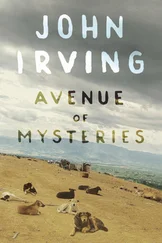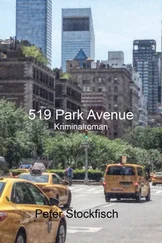To the left of the house, separated by a gravel path, the McCoys’ pharmacy, now an abandoned brick building with a side extension. A “For Rent” sign on the front, stacks of waterlogged and then driedout moving boxes on the front porch, two bright-blue garbage cans on wheels. The bedridden Mrs. McCoy, long dead for sure. Cancer in her voice, the neighborhood boys said. She talked through a kind of tube in her stalky neck, a raspy, unamplified croak that would startle me awake at night, in a cold sweat. Voice cancer. A brownish hole in her throat, you could see it. Didn’t really tally with running a pharmacy, the only brick house in the neighborhood, stacked to the rafters with pills and potions. Comes from smoking, my mother said, so for a while when I was home alone I’d flush her open pouches of shag down the toilet. That yammering of Mrs. McCoy, that raspy grumbling. A croak that carried across our yard, across the oil stains on the driveway, drowned out the rooster somewhere behind the houses across the road. “Got a frog in her throat,” our new father said, which our mother didn’t approve of, making fun like that, but I could see she also had to try not to laugh. The McCoys had a Great Dane, one of those bareback horses that the pharmacist, a friendly man with horn-rimmed glasses, took for walks in Live Oak Park. And he always had his arm around a diminutive black lady. The dog all to and fro with a stick, he laughing with the woman snuggled up against him. “Did you know,” I apparently said, “that Mr. McCoy’s sister is black?”
“Stop — here it is.”
Boudewijn pulled over to the curb and shut off the engine. He tugged his polo shirt loose from his belly. The chirping of crickets, somewhere a bus pulling out.
“I’ll be right back. You stay with Mike.”
Curdled air. I’d lived in California for more than a year and a half now, every day I felt the mugginess, saw palm trees, and smelled the sea — and still the atmosphere on this street was different. An older America. Incongruous Luxaflex, half shut, hung in the windows. We had light-brown curtains with orange circles, my mother sewed them, suddenly having entire days to herself. I only learned later that she couldn’t get a work permit. At the end she used to go to the shipyard in the morning, on the sly.
Mike started crying. I slid between gleaming car bumpers, onto the wide sidewalk, and laid my hand on the wooden fence, still splintery. On the bare grass a plastic kiddie playhouse with peeling Bugs Bunny decals, a bike with a child’s seat leaning against one of the pillars supporting the overhang — still, the yard looked better than when we lived there. It was a mess back then. A mother with a Black & Decker workmate. Old cabinets in the yard, particle board, sawdust, tools, work gloves. It didn’t take the neighborhood kids long to figure out that this was the place to be, you could do anything at Janis and Joni’s. In the back of the living room my mother had a candy jar full of Dutch licorice drops sent over by Grandma and Grandpa. All day long, even if no one was home, children would walk in and help themselves to a handful. My mother knew how to spoil an American brat.
Boudewijn quieted Mike down; his voice sounded surprisingly close by. “Why not ring the bell?” he called through the open window. “Maybe they’ll let you look around inside.”
The Luxaflex in the left-hand dormer window went up. A sturdy, middle-aged Latina threw open the window, stuck her arm out and shook a dustcloth. She saw me, I withdrew my hand from the fence and smiled. She gave a barely discernible nod, peered down the street, and pulled the window closed.
A Spanish-speaking woman, it came back to me, was a fixture at Scotty’s parents’ house. A bitter, peevish poltergeist who did the washing and ironing. I looked across an overgrown driveway toward their front yard. Scotty, the chubby blond son of Wyoming natives who had come to work in the Oakland harbor. “Billy Bunter,” Siem called him. Always came over to play, usually just as we were sitting down to lunch. His fat little sausage-fingers on the fence: “Joni!” Shrill and persistent, until my mother would eventually lay down her cutlery and get up from the table with a sigh.
“Can Joni come out and play?”
“Joni’s eating right now, Scott.”
“Only one sandwich, tell her.”
“I’m going to have a look farther up,” I said to Boudewijn, gave the Land Rover a little slap on the roof and walked over toward Scotty’s house.
It was still there, of course, just as I left it. The prettified, high-gloss, prim little palace. Two-storey bay window and classical veranda with — just like back then — a porch swing. Pristine white paint, the trim in what they call Delft blue back in Holland. Inside, brass bowls, brass lampshades, a wall-mounted antique rifle with brass fittings. I recalled a pried-open violin with dried flowers sticking out. I spent remarkably little time inside that house. Shoes off, don’t break anything. Scott and his younger sister had to play outdoors; the warden who so closely guarded the house was a talkative housewife who, every other day at a fixed time, appeared on the porch with pink rubber gloves and a bucket of suds to give the front of the house a thorough going-over. Scotty had a mountain bike, and when we weren’t cycling together through the neighborhood he’d pull me on my roller skates by a rope tied around his waist, up and down the hilly streets, up north behind the Berkeley campus where the students had their sandwich shops and bars and coffee houses. Sometimes he would stop abruptly, lay down his BMX, and sit cross-legged in his short pants on the blacktop.
“What’re you doing?”
“I’ll be done in a minute.”
“But what are you doing ?”
“Waiting until I don’t need to anymore.”
“Need to what?”
“Poop. I push it back, then I don’t need to anymore.”
Poop-sitting, that’s what the little stinker called it. Once, one afternoon in this dream landscape, I explained to Scott with a piece of chalk on the sidewalk how you spelled his name. Skot , I wrote, S-k-o-t, with a k , and certainly not with two “t”s. But that bossy little poop-pusher, a grade behind me, kept insisting that you wrote Scott with a c ; a half hour later we were still at it and tears streamed down his pudgy cheeks. I let him dry up and said: OK, let’s go ask your mother. I was mistaken, and Scott’s mother made sure I knew it; she called me uppity, sassy, and ill-bred. “And take your hand off that chair.” “That’s not a chair,” I answered in perfect English, “it’s a sofa”—and although I was right, it was a sofa, a flowery love seat, this exchange did not exactly endear me to Scotty’s mother.
Scott loved us. During our second summer in that house he used to drop by at about seven in the evening. He’d walk around to the backyard and greet us collectively with “hi Joni,” upon which we’d respond in chorus with “hey Scotty,” and then I’d laugh and my mother would sigh, and even Janis, five years old, got the joke — everyone except Scott himself. His eyes scanned the overgrown grass until he spotted the leather soccer ball we’d brought with us from Holland, holding it clumsily above his head, trampling my mother’s plants, calling out “excuse me” while my father, exhausted from a day of advanced mathematics, did the washing-up with the elder of his brand-new daughters like a machine of flesh and blood, singing or joking all the while, or inquiring after my day at school. Sometimes I would go out back with a wet plate to join in my mother and Scotty’s chit-chat, and hear him whisper in my ear to ask my father if we could go play soccer. Because that’s what he came for: football with Siem. What he felt for that friendly, funny, interested, strong, athletic man back there in the kitchen, I felt too. The energetic pace of his dish-washing routine, his handling of the platters and pans and glasses and lids, told me that we had lucked out, that Mom, my sister, and I should be mighty pleased with this new dad.
Читать дальше












